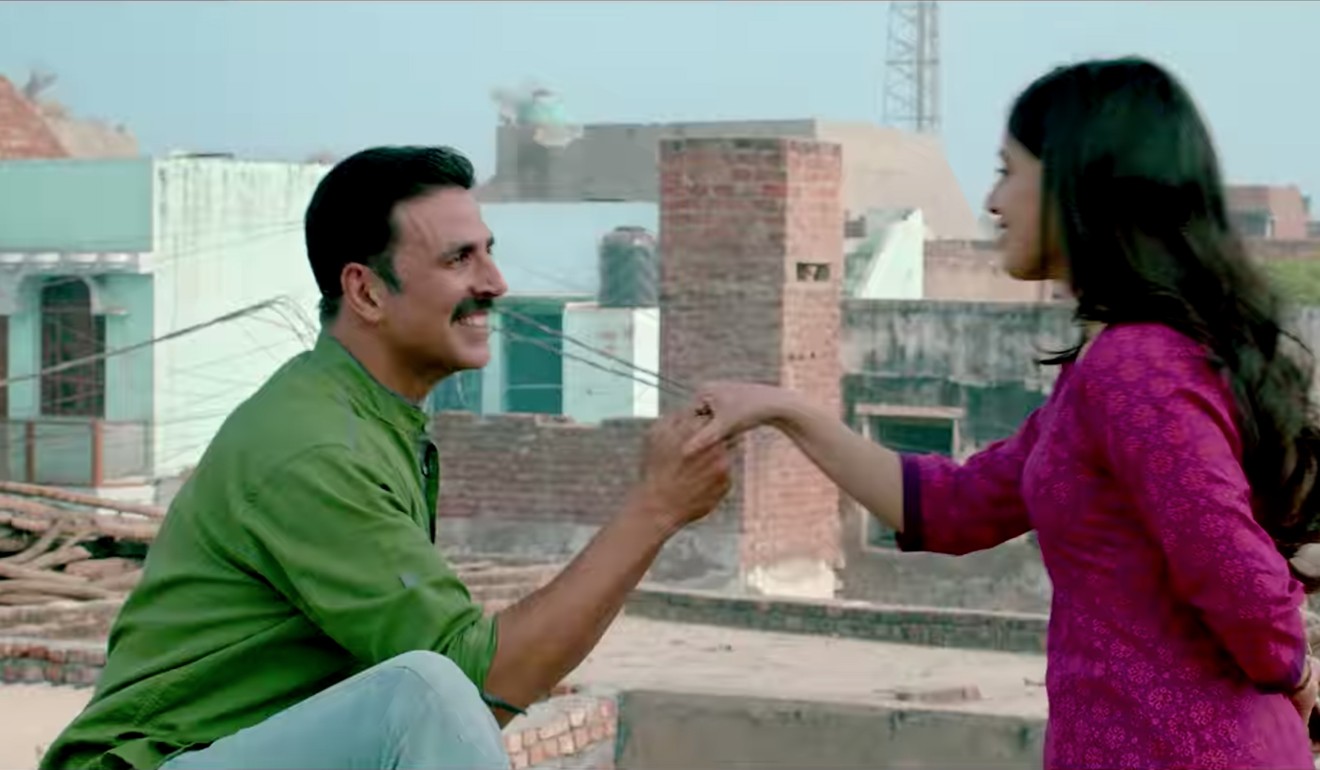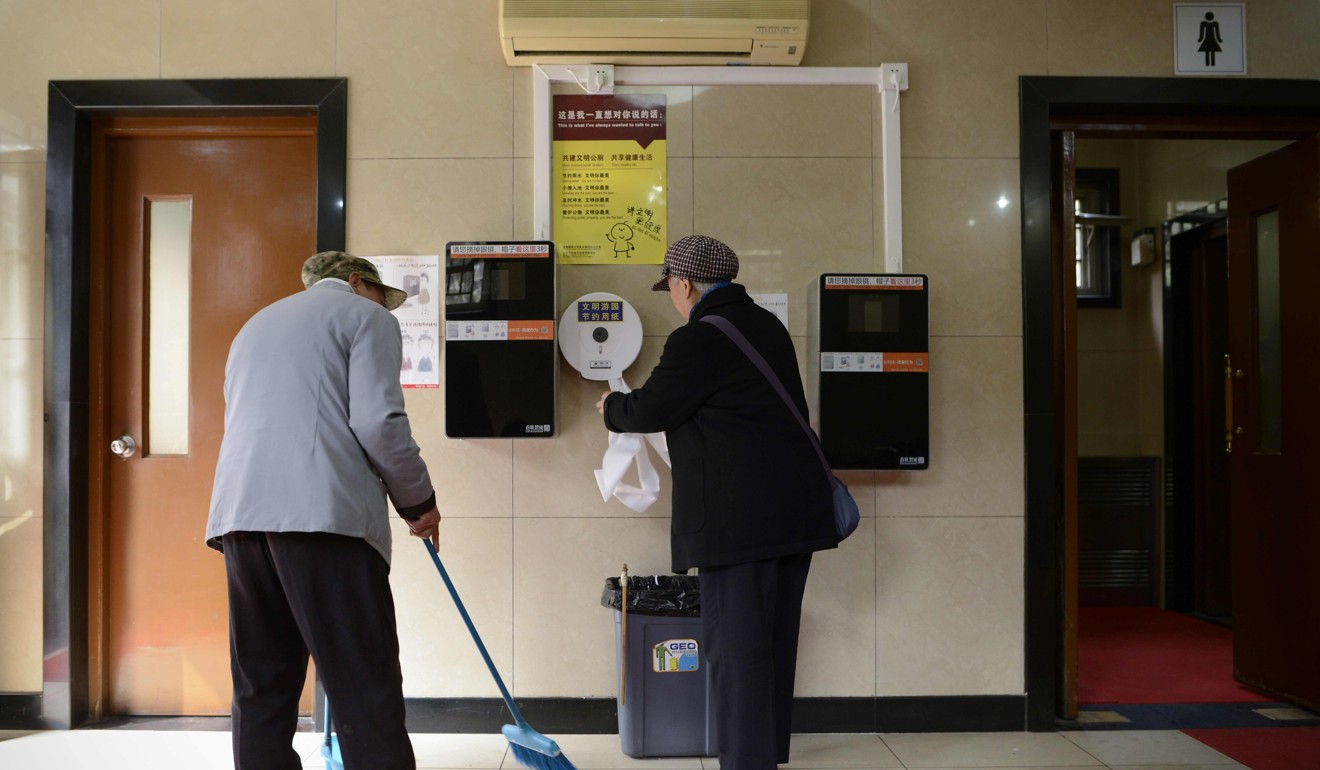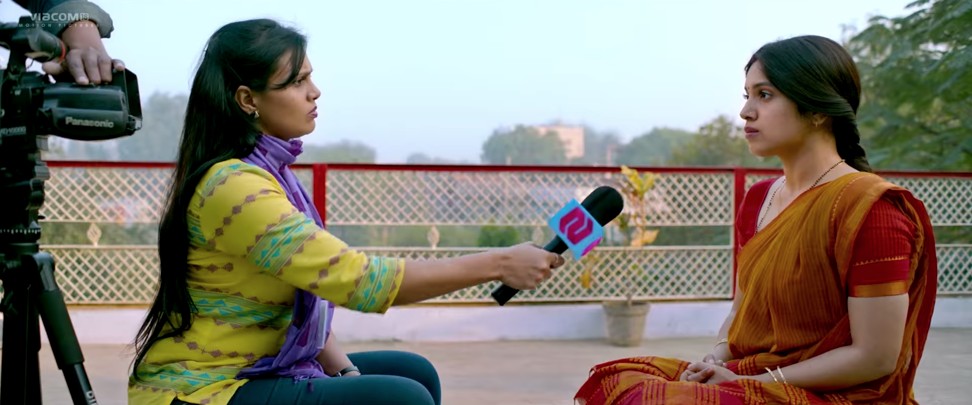
Toilet: A Love Story — the Indian movie that’s a loocrative hit in China
Bollywood comes up smelling of roses with a feminist romcom that goes humorously where Chinese films can’t
A Bollywood romantic comedy about a lack of toilets for women in rural India has become an unlikely hit in China, topping the box office since its Chinese debut on Friday.
Toilet: Ek Prem Katha, or Toilet: A Love Story has earned 66 million yuan (US$10.3 million) in Chinese cinemas, striking a chord with its tale of a man who leads a social campaign for gender equality when he sets out to build an indoor toilet his new wife.

Chinese film critics and viewers said the movie’s theme resonated in China and did something China’s movie industry didn’t do – used a personal story to examine a bigger social problem in an engaging way.
Toilet: A Love Story is set in rural Uttar Pradesh, where many women can only defecate outdoors and, even then, only after dark.
The heroine, a university graduate, marries one of the villagers and demands that her husband build a toilet for the family – something her father-in-law refuses to allow. The husband must choose between tradition and his marriage.
“Open defecation” is common in rural parts of the country and the Indian government launched a campaign in 2014 to eradicate the practice by building 110 million toilets by next year.
China has also embarked on its own toilet revolution in the last few years but the focus has been more about increasing the number and improving the hygiene of public facilities, as well as reducing waiting times, especially for women.
Shanghai white-collar worker Sandy Liu said she liked the way the movie used humour to tackle a legacy of the past.
“I like the movie because it directly points out a bad habit from traditional culture, it mocks bureaucracy, shows the emergence of feminism, and most importantly, does it in a funny way,” Liu said.
“China also has toilet issues, but it still is unbelievable for us to see those Indian women relieving themselves outdoors. For Chinese women, the problem lies in public toilets – to make them cleaner and the waiting times shorter.
“For example, I lined up for more than seven minutes to use the restroom in the cinema after watching the film.”

Toilet: A Love Story is the fifth Indian movie to get a mainstream Chinese release this year and follows similar success last year by Bollywood sporting biopic Dangal. Secret Superstar, a film about domestic violence, and Hindi Medium, which looks at education and social class, have also earned hundreds of millions of yean in China.
Beijing-based film critic Feng Jun said Indian movies were popular in China because Bollywood went where local filmmakers couldn’t.
“One important thing in common in popular Indian movies, from Dangal to Toilet, is that they touch on various social issues, which in China, because of policy factors, can’t be done,” Feng said.
The key, she said, was doing it in a lighthearted way.
“If you look at the overall box office performance in China, it’s always comedy and romance that do the best,” Feng said.
She said China had produced a few movies on social issues but had fallen down on storytelling.
One example was Wrath Of Silence, the story of a migrant worker searching for his missing son. It touched on corruption and was well regarded online, but struggled to attract film-goers.
Feng said Wrath of Silence was like many domestic films that presented social themes in “either a too weighty or literary way”.


